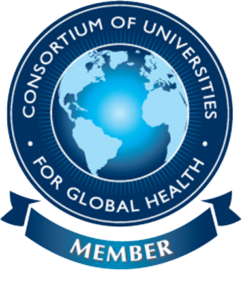
A recent study led by SDSU and Stanford University researchers endorses ethnicity-specific screening and prevention strategies.
The growing Asian-American population in the United States has a diverse set of health behaviors and outcomes, and may benefit from cancer prevention and screening efforts tailored to specific Asian ethnic groups, according to a study led by researchers at San Diego State University and Stanford University, and published in the journalCancer Epidemiology, Biomarkers & Prevention.
In recent years, Asian-Americans have surpassed Hispanics as the fastest growing racial/ethnic group in the United States. There are currently 17.3 million Asian Americans, representing 5.6 percent of the population. By the year 2050, the U.S. Census Bureau estimates the Asian-American population will exceed 40 million.
Beginning in 2003, U.S. death certificates identified six major subgroups of the Asian population—Asian-Indian, Chinese, Filipino, Japanese, Korean, and Vietnamese. Until the release of the new death certificate, only seven states collected detailed information on Asian ethnicity, which limited knowledge of how cancer affected each group, said Caroline A. Thompson, Ph.D., MPH, an assistant professor of epidemiology in the Graduate School of Public Health at SDSU and the study’s lead author.
For this National Institutes of Health–funded study, the study’s senior author, Latha P. Palaniappan, M.D., MS, a clinical professor of medicine at the Stanford University School of Medicine, Thompson and colleagues obtained data on 85,616 cancer-related deaths from 2003 to 2011 from the National Center for Health Statistics. They examined mortality statistics by cancer type, sex, and ethnicity. Some key findings:
- Overall, Asian-Americans experience lower cancer mortality rates than non-Hispanic whites, but certain exceptions point to differences in biological or lifestyle risk factors.
- Stomach cancer accounted for 10 to 15 percent of Korean cancer deaths, and five to 10 percent of Chinese, Japanese, and Vietnamese cancer deaths, compared with less than two percent of cancer deaths in non-Hispanic whites.
- Liver cancer accounted for 22 percent of cancer deaths in Vietnamese males, 12 percent in Chinese males, and 10 percent in Vietnamese females, compared with less than 2.5 percent of cancer deaths in non-Hispanic whites.
- Lung cancer is the leading cause of cancer-related death among men of all Asian-American ethnicities, and for most women. However, the researchers noted that while lung cancer mortality trends are stable or declining among most of the population, there has been a modest increase in lung cancer deaths among Chinese, Filipina, and Japanese women.
- Breast cancer deaths accounted for 19.5 percent of all Filipina cancer deaths and 19.8 percent of Asian Indian cancer deaths, compared with 14.6 percent of cancer deaths among non-Hispanic white women. Among other Asian American women, breast cancer death rates were significantly lower than those for non-Hispanic white women.
“Our findings suggest that national cancer prevention efforts may benefit from ethnic-specific information on the cancers that affect each specific subgroup within the Asian-American population,” Thompson said. “For patients, it’s important to understand your risk profile, and to consider cultural, lifestyle, or modifiable health behaviors that might increase your risk of cancer.”
The authors suggested that screening efforts tailored to specific populations could be useful in preventing cancer or diagnosing it at an earlier stage. For example, they noted, gastric cancer screening programs are well established in Japan and South Korea, and could potentially benefit the Japanese and South Korean population living in America.
Such efforts would benefit significantly from the continued collection of data on specific Asian subgroups, they added.
“We believe this study highlights the importance of capturing and considering distinct Asian ethnicity in census data, disease surveillance and vital statistics data, as well as medical records and research studies,” Palaniappan said.
Thompson said a limitation of the study is the potential for misclassification, since death certificates are generally completed by medical personnel who may not know detailed ethnicity.
SDSU was recently awarded a $10 million endowment by the National Institutes of Health to improve infrastructure supporting population health and health disparities research at the university.





